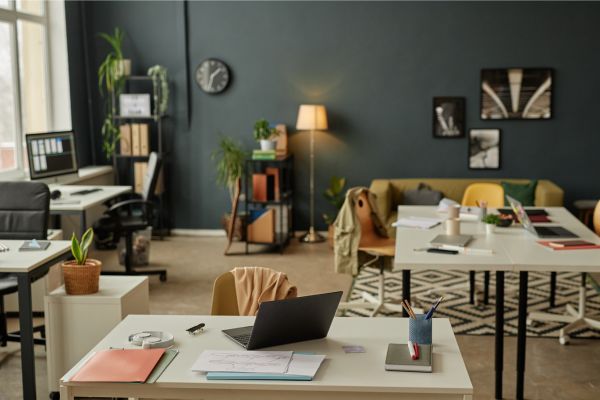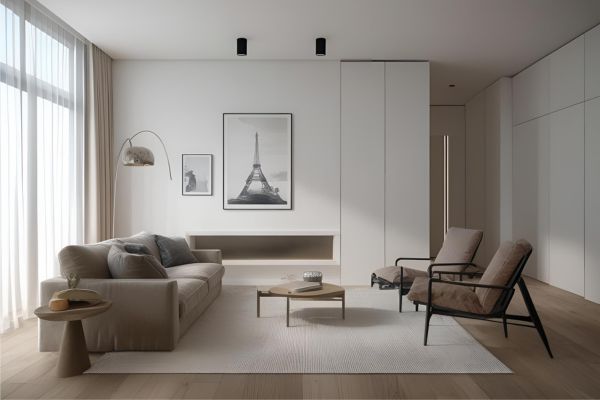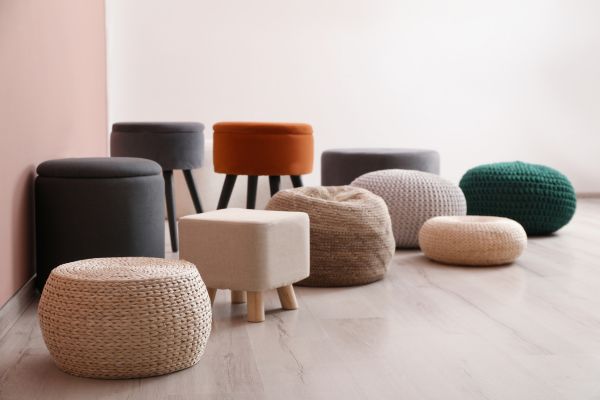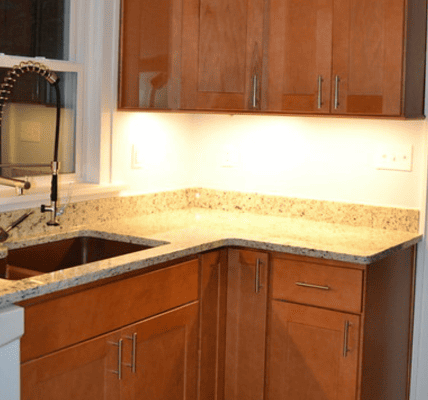A cluttered space often leads to a cluttered mind. Many people feel a sense of unease when surrounded by piles of paperwork, overflowing shelves, or disorganized rooms. While this discomfort might seem like a minor inconvenience, research suggests that clutter has a direct impact on mental health, particularly by increasing cortisol, the body’s primary stress hormone. Understanding the science behind this connection and the psychology of minimalist spaces can help create a healthier, more peaceful environment:

The Science Behind Clutter and Cortisol
Several studies confirm that clutter is more than just a visual nuisance; it triggers a physiological stress response. A well-known study from UCLA’s Center on Everyday Lives of Families (CELF) found that individuals, particularly women, who live in cluttered homes tend to have higher cortisol levels throughout the day, with stress levels increasing by 30% compared to those in organized spaces. Chronic exposure to clutter creates a low-level stress response, keeping the brain in a heightened state of alertness and anxiety.
When the brain is constantly processing an environment filled with excess visual stimuli, it struggles to focus, prioritize, and relax. The result is mental exhaustion, irritability, and an ongoing sense of overwhelm. Over time, this can contribute to long-term stress-related health issues, including a 40% increase in sleep disturbances and a 45% higher risk of chronic fatigue.
How a Cluttered Environment Affects Mental Well-Being
Increased Anxiety and Overwhelm
Clutter signals to the brain that there are unresolved tasks that need attention. Whether it’s an overflowing closet, a messy desk, or a pile of unread mail, these visual reminders create a sense of pressure, making it difficult to mentally unwind.
A study published in the Journal of Environmental Psychology found that people who describe their homes as cluttered are 77% more likely to experience symptoms of anxiety and depression. The subconscious mind perceives disorganization as a sign of unfinished work, leading to a heightened sense of unease.
Reduced Focus and Productivity
Clutter competes for attention, making it harder to concentrate on tasks. Research from Princeton University’s Neuroscience Institute found that a disorganized environment reduces the brain’s ability to focus by up to 20% and increases cognitive load.
The more objects in the field of vision, the harder the brain has to work to filter out unnecessary distractions. This is especially problematic for people working or studying in cluttered spaces, as it can lead to procrastination, difficulty retaining information, and lower overall productivity.

Sleep Disruptions
A cluttered bedroom can negatively impact sleep quality. A study by the American Academy of Sleep Medicine found that people who sleep in cluttered environments take 20% longer to fall asleep and experience 25% more disturbances throughout the night.
This is because the brain associates the mess with tasks that still need to be completed, preventing it from fully relaxing. Poor sleep hygiene caused by clutter can contribute to higher cortisol levels, creating a cycle of stress and fatigue.
The Psychology of Minimalist Spaces
Creating Cognitive Ease
A minimalist environment simplifies decision-making and reduces mental load. When spaces are organized and visually calming, the brain can process information more efficiently, leading to a greater sense of relaxation.
Minimalist spaces promote cognitive ease by removing distractions and allowing the mind to focus on the present moment. Studies show that individuals in decluttered environments report a 23% improvement in overall well-being and a 33% decrease in daily stress levels.
Boosting Feelings of Control
Disorganization often leads to feelings of being overwhelmed and out of control. In contrast, maintaining a clutter-free space helps reinforce a sense of stability and intentionality. Studies have shown that people who actively organize their living or workspaces experience a 42% increase in self-efficacy, meaning they feel more in control of their environment and daily tasks. This, in turn, reduces stress and promotes a greater sense of well-being.
The Role of Color and Space
Minimalist spaces often incorporate neutral colors, natural light, and open layouts, all of which contribute to a calmer atmosphere. Research in environmental psychology suggests that lighter, more open spaces reduce stress levels by 35% and enhance creative thinking by 28%. Additionally, minimalism often emphasizes functional and aesthetically pleasing design, which has been linked to lower levels of stress and higher levels of creativity.

The Link Between Minimalism and Dopamine Release
Decluttering not only reduces stress but also stimulates the release of dopamine, a neurotransmitter associated with motivation and pleasure. The act of cleaning, organizing, and creating a visually appealing space provides a sense of accomplishment, which in turn reinforces positive behavior.
A study published in the Personality and Social Psychology Bulletin found that people who describe their homes as restful or restorative report 29% lower stress levels than those who feel their homes are chaotic or cluttered.
Practical Steps to Reduce Clutter and Lower Stress
The One-Minute Rule
If a task takes less than one minute to complete—such as putting away a dish, folding a blanket, or returning an item to its designated place—it should be done immediately. This simple habit prevents small messes from accumulating into larger, more overwhelming clutter.
The 90/90 Rule
A popular decluttering method suggests that if an item has not been used in the last 90 days and is unlikely to be used in the next 90 days, it may no longer serve a purpose. Letting go of unnecessary items reduces visual noise and makes it easier to maintain a tidy space.
Mindful Consumption
A clutter-free environment starts with mindful purchasing habits. Before bringing new items into a space, it’s important to ask whether they add genuine value. By prioritizing quality over quantity and avoiding impulse purchases, it becomes easier to maintain a minimalist and organized living space.
Digital Decluttering
Clutter isn’t limited to physical spaces—digital spaces can also contribute to cognitive overload. Organizing digital files, decluttering email inboxes, and limiting notifications can create a more streamlined and less distracting environment, both online and offline.
Organized Storage Solutions
Using designated storage areas for frequently used items can help maintain order. Storage bins, shelving units, and minimalist furniture with built-in organization features make it easier to keep spaces clutter-free. Implementing these systems ensures that belongings have a proper place, reducing the likelihood of mess accumulating.
How to Maintain a Minimalist Mindset in a Consumer-Driven World
Minimalism isn’t just about decluttering—it’s a mindset that prioritizes simplicity and intentionality. One way to maintain this lifestyle is by shifting the focus from material possessions to meaningful experiences. Practicing gratitude for what is already owned, rather than constantly seeking more, fosters contentment and reduces the urge to accumulate unnecessary items. Being intentional with purchases and creating spaces that reflect personal values contribute to a more fulfilling and less stressful life.
Clutter Increases Stress
Clutter isn’t just an inconvenience—it has real consequences for mental health and stress levels. Scientific research has shown that disorganized environments increase cortisol, leading to heightened anxiety, reduced focus, and even disrupted sleep. On the other hand, minimalist spaces provide cognitive ease, promote relaxation, and enhance overall well-being. By embracing a clutter-free lifestyle and adopting simple decluttering habits, individuals can create an environment that fosters clarity, calmness, and productivity.




